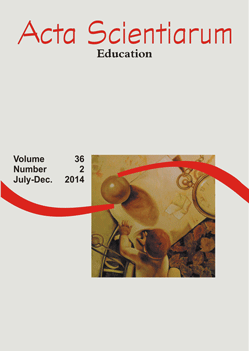<b>Education and Philosphy in Plutarch's <i>Moralia</i>: The <i>De liberis educandis</i> and the <i>De Iside et Osiride</i>, in other words, when the teacher trains the student to be a philosopher
Abstract
The De liberis educandis and the De Iside et Osiride are specifically related to paideia: the former work analyzes how to train a student in philosophy; the latter shows how a person educated in philosophy could relate himself to a cult alien to Greek religious tradition. In fact, only through philosophy it is possible to understand the deeper meaning of a mythology which is quite different from the Greek one. In fact, the concept of dualism is hidden within the strange tale of Isis and Osiris, or rather, a notion that only a philosophical-allegorical interpretation may reveal
Downloads

This work is licensed under a Creative Commons Attribution 4.0 International License.
DECLARATION OF ORIGINALITY AND COPYRIGHTS
I declare that this article is original and has not been submitted for publication in any other national or international journal, either in part or in its entirety.
The copyright belongs exclusively to the authors. The licensing rights used by the journal are the Creative Commons Attribution 4.0 (CC BY 4.0) license: sharing (copying and distributing the material in any medium or format) and adaptation (remixing, transforming, and building upon the material thus licensed for any purpose, including commercial purposes) are permitted.
It is recommended that you read this link for more information on the subject: providing credits and references correctly, among other crucial details for the proper use of the licensed material.















































